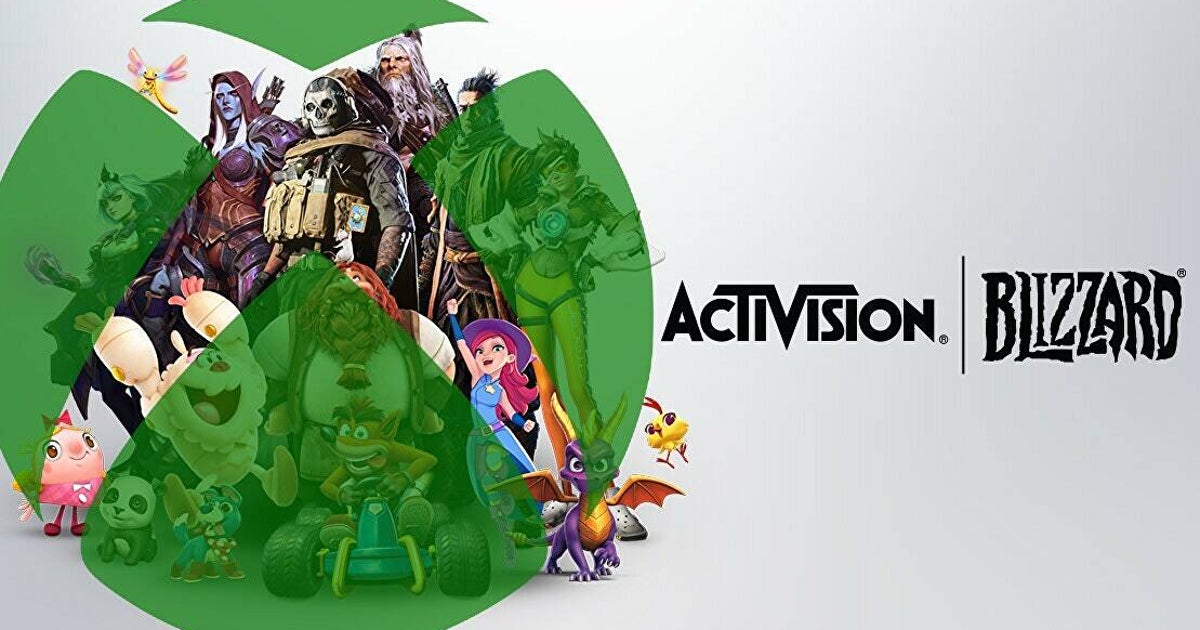The Federal Trade Commission has filed a legal complaint in an attempt to block Microsof’ts proposed $68.7 billion acquisition of Activision Blizzard.
The Commission says the deal, if approved would “enable Microsoft to suppress competitors to its Xbox gaming consoles and its rapidly growing subscription content and cloud-gaming business.”
It was reported last month that the FTC was likely to file such a lawsuit, and news emerged earlier this week that Microsoft was preparing to defend the deal in court.
There was also a report that the four-member commission was evenly split in terms of who would vote for and against passing the deal. A two-against-two deadlock would have resulted in the merger being approved by default.
But the FTC announced today that the vote was three-to-one in favour of issuing the complaint, with Commissioner Christine S. Wilson – the only Republican in the group – voting against.
This marks the beginning of proceedings, with the issuance of the complaint to be followed by a formal hearing in which an administrative law judge will hear the FTC’s allegations in more detail.
Both Microsoft and Activision estimated the merger would be complete by June 30, 2023. However, legal proceedings are likely to delay this.
Chief among the FTC’s reasons for attempting to block the deal was Microsoft’s history of “acquiring and using valuable gaming content to suppress competition from rival consoles.”
The FTC specifically cited the $7.5 billion acquisition of ZeniMax Media, which owns Bethesda. Despite repeated assurances to antitrust regulators ahead of this merger that it would not withhold games from rival platforms, it later announced next year’s hotly anticipated Starfield will be exclusive to Xbox and PC.
“Microsoft has already shown that it can and will withhold content from its gaming rivals,” said Holly Vedova, director of the FTC’s Bureau of Competition.
“Today we seek to stop Microsoft from gaining control over a leading independent game studio and using it to harm competition in multiple dynamic and fast-growing gaming markets.”
While Activision has historically been a multi-platform publisher, the FTC believes this “could change if the deal is allowed to proceed.”
“With control over Activision’s blockbuster franchises, Microsoft would have both the means and motive to harm competition by manipulating Activision’s pricing, degrading Activision’s game quality or player experience on rival consoles and gaming services, changing the terms and timing of access to Activision’s content, or withholding content from competitors entirely, resulting in harm to consumers,” the Commission wrote.
The FTC estimates that across all its franchises – including Call of Duty, World of Warcraft, Diablo and Overwatch – Activision Blizzard has access to a combined 154 million monthly active users around the world.
This does not appear to take into account the more than 200 million monthly active users across the Candy Crush series by King, which is also owned by Activision Blizzard.
Microsoft has already attempted to offer concessions and make announcements that might calm regulators, such as this week’s promise to bring Call of Duty to Nintendo platforms and Steam for at least ten years if the deal is approved.
However, as we discussed today, this does not address concerns shown by various regulators in key markets.
While the acquisition has been approved in Brazil and Saudi Arabia, it still faces an in-depth investigation from antitrust regulators in the European Union and the UK’s Competition and Markets Authority.
You can keep up to date with the regulatory hurdles the acquisition faces with this handy primer.
Update: Microsoft president Brad Smith and Activision Blizzard CEO Bobby Kotick have each issued statements in response to the FTC’s lawsuit.
Smith commented on the news via Twitter, saying: “We continue to believe that our deal to acquire Activision Blizzard will expand competition and create more opportunities for gamers and game developers.
“We have been committed since Day One to addressing competition concerns, including by offering earlier this week proposed concessions to the FTC. While we believe in giving peace a chance, we have complete confidence in our case and welcome the opportunity to present it in court.”
Meanwhile, Kotick issued a letter to all Activision Blizzard employees, which was also shared via the publisher’s investor relations site.
Kotick acknowledged that news of the lawsuit “sounds alarming” but reiterated his “confidence that this deal will close.”
“The allegation that this deal is anti-competitive doesn’t align with the facts, and we believe we’ll win this challenge,” he wrote.
He added: “The competitive landscape is shifting, and, simply put, a combined Microsoft-ABK will be good for players, good for employees, good for competition and good for the industry. Our players want choice, and this gives them exactly that.
“We believe these arguments will win despite a regulatory environment focused on ideology and misconceptions about the tech industry.”


